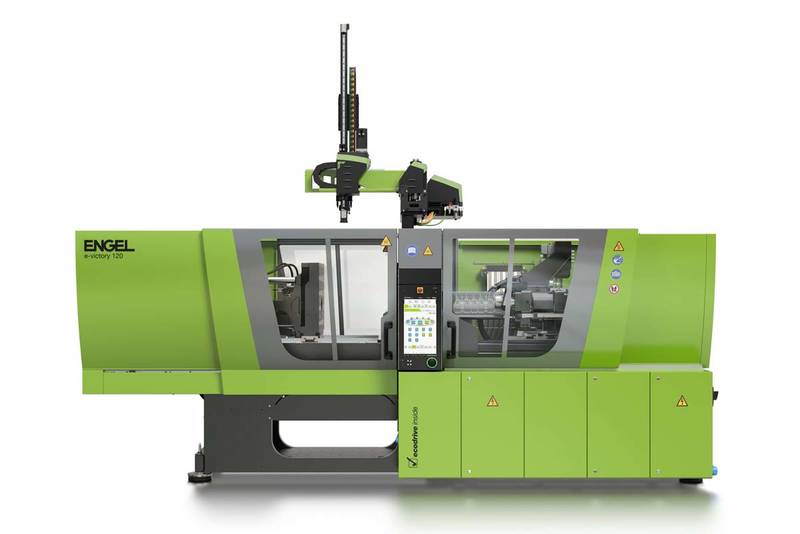 |
|
Liquid silicon processing is an important branch of the economy in South-East Asia. Among other products, baby pacifiers are produced in very large volumes. |
Applications based on liquid silicone rubber are rapidly expanding in South-East Asia coupled with increased requirements for the quality of the parts produced. The LSR seminar highlights the new challenges facing processors to find economic solutions through innovative processing technologies. The seminar is hosted by ENGEL in collaboration with Momentive Performance Materials and Elmet and takes place at the Plastics Institute of Thailand in Bangkok on 1 September. After several successful events in China and Korea, the partner companies are now staging their first joint seminar in South-East Asia.
"As quality requirements become more stringent, the focus is shifting more and more towards integrated processes. For example, multi-component processes based on thermoplastic-silicon bonds are a new topic for many processors here in the region," says Aram Tongurai, Managing Director of ENGEL Machinery (Thailand) with its head offices in Bangkok. "Our customers know that ENGEL, Momentive and Elmet all have a wealth of global experience with this topic, so we are receiving a rising number of requests for integrated solutions from them.“ Together with its system partners, ENGEL supplies turnkey plants for processing liquid silicone rubber (LSR) comprising automation, process technology, mould technology, quality check and other components besides the injection moulding machine. Every production cell is tailored to the customer's individual requirements. "When all cell components and materials are optimally matched from the very beginning, we can make full use of all the quality and efficiency potential," explains Leopold Praher, Sales Manager for elastomer applications at ENGEL. "In many cases, integrated solutions achieve much lower unit costs since several work steps can be often eliminated."
Integrated processes increase economic efficiency
 |
|
As quality requirements become more stringent, the focus is shifting towards integrated processes. Bonding thermoplastic and LSR in the injection moulding process opens up new market opportunities. |
The speakers in Bangkok will present completed projects using sample parts and videos and will describe new possibilities. One of the sample exhibits includes a sensor housing for flow rate measurement with an integrated seal. "The integrated multi-component process is what makes it possible to achieve a thermoplastic-silicon bond in the correct position," explains Praher. The exhibits are produced on a tie-bar-less ENGEL e-victory combi injection moulding machine coupled to an integrated ENGEL viper linear robot. "We ensure maximum precision by using servo-driven injection units," says Praher. “Normally the LSR sector requires special solutions involving very small injection unit volumes. We meet this requirement with a standard unit."
The tie-bar-less clamping units on the injection moulding machines of the ENGEL victory and ENGEL e-victory series are highly efficient machine concepts for automated multi-component processes involving liquid silicon. Since the complete area of the mould fixing platens can be used, large multi-component moulds can be mounted on comparatively small machines and this minimises both investment and operating costs. The robot has direct access to the cavities from the side without having to bypass interfering edges.
 |
|
Barrier-free access to the mould area of ENGEL e-victory injection moulding machines allows highly efficient production concepts. |
A third efficiency factor is the high precision of the tie-bar-less clamping unit. The patented force dividers ensure that the moving mould fixing platen follows the mould precisely during clamping force build-up and also distributes the applied force evenly across the platen. Both the outer and inner cavities are therefore kept closed at exactly the same force. This leads to constant quality and significantly reduces the risk of rejects. "Virtually burr-, waste- and rework-free and fully automated processing of LSR is the prerequisite to produce high-tech products made of liquid silicone in an economic way," says Praher.
From engine compartment connectors to respiratory masks
Besides specific applications, the lectures present innovative machine concepts, process technologies, dosing systems, cold runner technologies, automated mould concepts as well as new materials and their properties. During the breaks between lectures and the business lunch, participants can examine a wide range of silicon products, even handle them and talk to experts about them.
The products themselves consist of one or even several material components. In the afternoon, the experts from ENGEL, Momentive and Elmet are available for one-on-one talks. The participants are invited to bring along their own sample parts, CAD drawings and product ideas.
The LSR processing industry in South-East Asia has experienced very strong growth in the past few years, especially in Thailand. Among other products, baby pacifiers and other baby care items are produced in very large volumes. Multi-component technology now opens up new market opportunities for companies. The development of this technology is mainly driven by the automotive, teletronics and medical industries. Demand from the automotive industry for integrated solutions is, for example, for the production of engine compartment connectors, optical components and lighting systems. In the teletronics sector, the focus is on function elements in smartphones and tablets; and in the medical field, the new challenges include joint implants, respiratory masks and components for measuring instruments.










